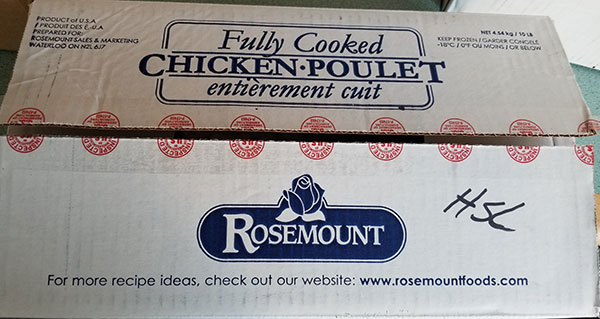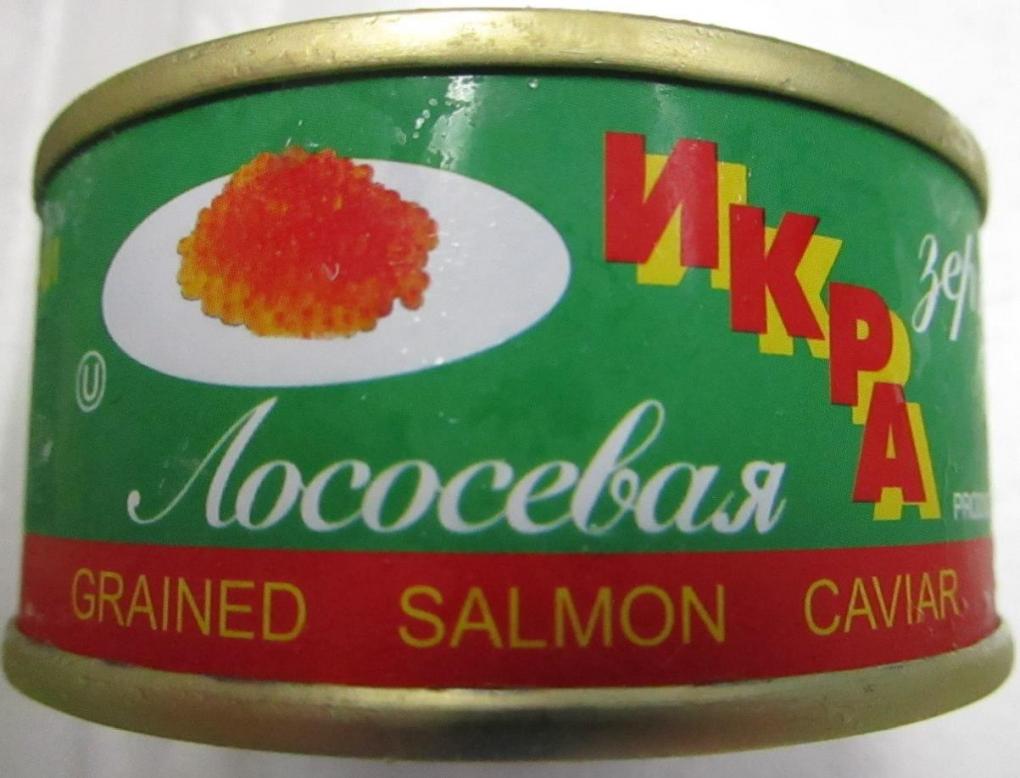The Canadian Food Inspection Agency (CFIA) announced that Rosemount Sales and Marketing (Ottawa based) is recalling Rosemount brand cooked diced chicken meat from the marketplace due to possible Listeria monocytogenes contamination. The products are Rosemount Cooked diced chicken meat 13 mm–in 4.54 kg packages. This recall was triggered by findings by the CFIA during its investigation into a foodborne illness outbreak. The recalled products were sold in British Columbia, Alberta, Saskatchewan, Manitoba, Ontario, Quebec, and Nova Scotia and may have been distributed to other provinces and territories. @ http://inspection.gc.ca/about-the-cfia/newsroom/food-recall-warnings/complete-listing/2019-08-18/eng/1566177360394/1566177366791
ruth
Rosemount Sales and Marketing is recalling Rosemount brand cooked diced chicken meat from the marketplace due to possible Listeria monocytogenes contamination.
ruth
Disinfection with mercury-vapor UV lamps (light emission at 254nm) is a common practice in the food industry because it is effective in killing bacteria and viruses by destroying their genetic material. Due to toxic heavy metals in these lamps, researchers at Fraunhofer Institute of Optics in Germany are investigating the use of UV LED as a greener alternative. UV light with a wavelength of 265nmwas studied as an alternative. Additional disadvantages of the conventional UV lamps are their long warm-up phases, their short service lives, and the fact that they cannot be deployed flexibly due to their bulky design. UV LEDs do not require any warm-up phase – they reach full power instantly; they offer high mechanical stability, are non-toxic and will operate at low voltage. The researchers are now able to operate the UV LEDs directly in water without the need for a tube to encase them. Thus they eliminate reflections to increase the performance yield of the radiation sources. They also developed a special module that can disinfect the insides of beer caps. @ https://optics.org/news/10/8/21
Mercury-free technology also suitable for disinfecting brew water, and tops for bottled beer and other drinks.
Emmy-S
The International Journal of Food Microbiology (August 2019) published an article from a team of researchers that had investigated the prevalence, serovar diversity, multilocus sequence types, and antimicrobial resistance of non-typhoidal Salmonella contamination in retail eggs produced and sold in Western Australia (WA). In the last 5 years, the number of Salmonellosis cases has more than doubled. Salmonella was detected in 11.5% of the tested eggs, Salmonella was isolated from 4.5% and 3% of eggshells and egg contents, respectively. In 4% of the samples, Salmonella was recovered from both eggshell and egg contents. Isolates from positive retail egg samples were serotyped as S. Typhimurium in 52.2% or S. infantis in 39.1%. Both serotypes were concurrently recovered from two different retail egg samples. Most (39/41) of Salmonella isolates were susceptible to a panel of 14 antimicrobials, demonstrating minimal risk from antimicrobial resistance Salmonella. @ https://www.sciencedirect.com/science/article/pii/S0168160519302363
ruth
The FDA announced on its website that AWERS, Inc. of Bellevue, WA recalled Grained Salmon Caviar 95g (Sockeye Salmon Caviar) because it has the potential to be contaminated with Clostridium botulinum. The product was distributed in California, New York, Oregon, and Washington and may have further distributed to other states and Canada. Product is packed in a metal tin with Cyrillic lettering. No illnesses have been reported to date. The product was reviewed by the Canadian Food Inspection Agency (CFIA) and sent to a lab for testing. The analysis showed a lower than normal salt content, which can foster an anaerobic environment which is necessary to breed the Clostridium botulinum bacteria. No Clostridium botulinum bacterium was detected in the product. @ https://www.fda.gov/safety/recalls-market-withdrawals-safety-alerts/awers-inc-recalls-grained-salmon-caviar-95g-because-possible-health-risk?utm_campaign=AWERS%2C%20Inc.%20Recalls%20Grained%20Salmon%20Caviar%2095g%20Because%20of%20Possible%20Health%20Risk&utm_medium=email&utm_source=Eloqua
AWERS, Inc. of Bellevue, WA is recalling Grained Salmon Caviar 95g (Sockeye Salmon Caviar) with “BEST BEFORE OCT 07 2020”, because it has the potential to be contaminated with Clostridium botulinum, a bacterium which can cause life-threatening illness or death.




